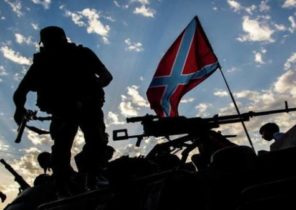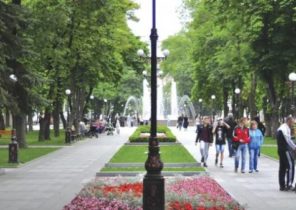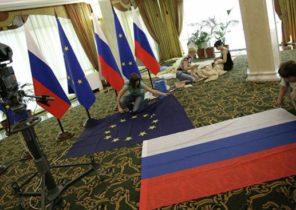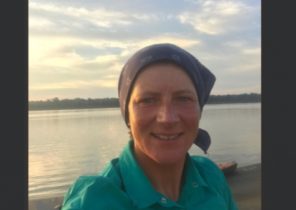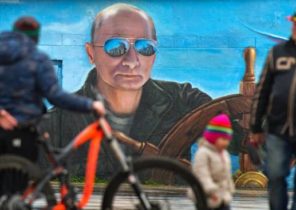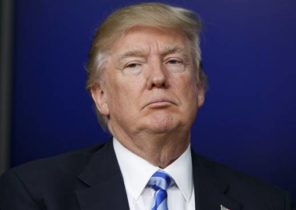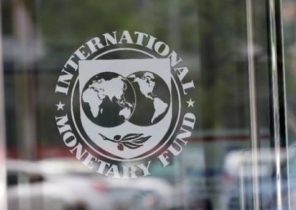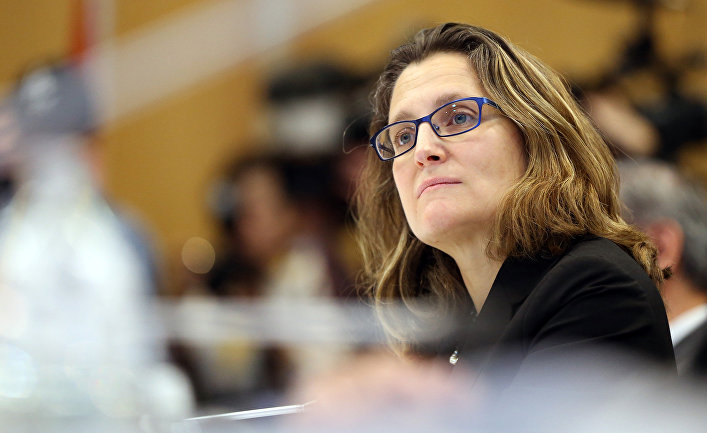
The Minister of foreign Affairs Chrystia Freeland (Chrystia Freeland) strongly rejected Russia’s proposal to remove the imposed ban on entry, if Canada cancels the economic and visa sanctions against Moscow in response to the annexation of the Crimean Peninsula from Ukraine in 2014.
“No trades around their aggression and illegal acts are not conducted”, — said in Wednesday’s Globe and Mail Director of public relations Ms. Freeland Pickerill Joe (Joe Pickerill).
Russian news Agency Sputnik reported earlier, citing an anonymous source in the Russian Ministry of foreign Affairs that the Kremlin is ready to allow Ms. Freeland to visit Russia, but only if Canada will refuse it has taken against Russia economic and visa measures.
“She was included in the sanctions list in retaliation, as Canada has imposed restrictions against Russia, including against officials. the Removal from her retaliatory sanctions — the question of reciprocity and the reflectivity, noted the news Agency the employee of the foreign Ministry. — We are ready to cooperate with Canada in any field, to improve the relationship, to end the sanctions war. But they started the war not us, and the relevant question should be addressed to Ottawa”.
On Tuesday, after his accession to the post of Minister of foreign Affairs, Ms. Freeland said that the question of whether it is to pay a visit to Russia, is not within its competence.
“It is a question to Moscow, she told reporters. — I fully support the position of our government, suggesting that it is important for us to interact with all countries, including with Russia.”
It is unclear, does not cancel any future US President Donald trump American sanctions that could put Europe and Canada in a difficult position. On Wednesday Mr. trump laudatory comments about Russian President Vladimir Putin at his press conference in new York.
“If Putin cute Donald trump is a advantage, guys. That’s a plus. I don’t know if I can get along with Vladimir Putin. I hope that will work, but it may not happen”, — he said.
While the future of trump administration, apparently, is going to maintain sanctions. This was said Rex Tillerson (Rex Tillerson), put forward by Mr. trump for the post of Secretary of state, and previously headed the oil company Exxon Mobil, which actively conducts business in Russia.
“I would recommend to keep the status quo, until we begin to interact with Russia and will be better able to understand its intentions,” said Mr. Tillerson on Wednesday at a Senate hearing on the issue of approving it in post. However, he also noted that sanctions hurt American business interests abroad.
Ms. Freeland, a former financial journalist who worked in Moscow and actively supports Ukraine. She got in the black list in 2014, along with 12 Canadians, among whom was a member of Parliament from the Liberal party, Irwin Cotler (Irwin Cotler), President of the Ukrainian canadian Congress Paul Grod (Paul Grod), member of Parliament from the Conservative party James Bezan (James Bezan) and the Senator from the Conservative party Raynell Andreychuk (Raynell Andreychuk).
However, an unnamed senior foreign Ministry official also added that the presence of Freeland in the sanctions list “will not prevent the Russian officials to have contact with her on international platforms”.
Ms. Freeland fluent in Russian, spoke with Mr. Putin at last year’s Asia-Pacific economic cooperation, he said.
After Moscow imposed sanctions, Ms. Freeland noted in her Twitter that “get in Putin’s sanctions list for her honorable.”
Ms. Freeland also stands for the support of all political parties initiative for the adoption by Canada of similar to the American Magnitsky Act, allowing to freeze the assets of Russian human rights violators and deny them entry.
Former Minister of foreign Affairs stéphane Dion (Stéphane Dion) objected to this, claiming that Canada already has laws against corrupt officials. He also feared that such a law prevent Canada to re-establish relations with Russia.
In the elections of 2015 and the liberals, conservatives and New democratic party promised to take the equivalent of the Magnitsky Act. U.S. law named after Russian whistleblower Sergei Magnitsky, who accused a number of employees of Russian law enforcement and tax authorities in large tax fraud, and died in November 2009 in Moscow’s notorious prison. His friends and relatives say that before he died he was tortured and beaten, and that he was denied necessary medical care.
The Committee of the house of Commons on international relations is now analyzing the Law on freezing assets of corrupt foreign officials Act, special economic measures, allowing Canada to impose sanctions against foreign governments for serious violations of international peace. It is the last law Canada used to impose economic sanctions against Russia after the annexation of Crimea.
The Russian Embassy in Ottawa warned that any attempt to adopt something like the Magnitsky Act would harm relations between the countries. In 2012, when President Barack Obama signed the Magnitsky Act, in response to the Kremlin forbade Americans to adopt Russian children.
In the past year, the Kremlin also force pressure on the Anglo-American financier William Browder (William Browder), a leading international campaign that encourages other countries to adopt laws similar to the Magnitsky Act. Since then, the liberals came to power, he made several visits to Canada, trying to get the government and parliamentarians to adopt such law. It is expected that he will meet with Ms. Freeland next week at the world economic forum in Davos, Switzerland.
Mr. Magnitsky was working for Mr Browder, and largely thanks to the efforts of the last Congress passed in 2012 a law, which led the Kremlin into a rage. Russian officials have repeatedly accused Mr. Browder’s tax fraud, but he denies his guilt.
